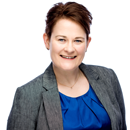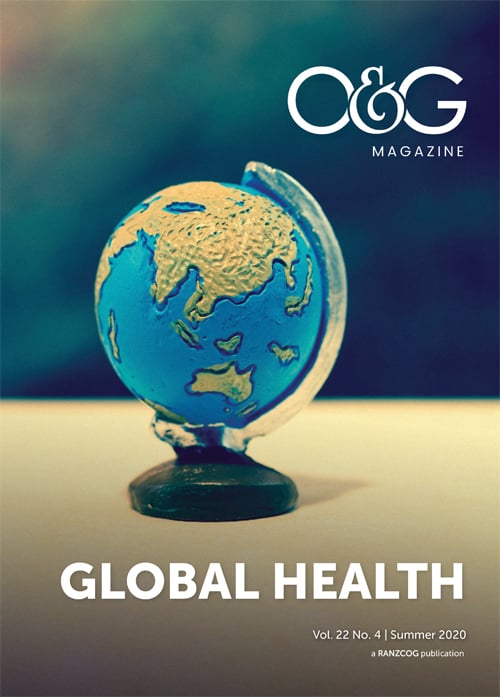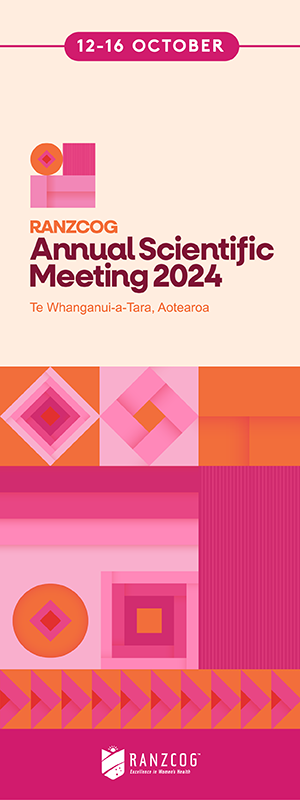It is now 10 years since I first visited the island of Bali, Indonesia, with my colleague A/Prof John Svigos. John has written previously for O&G Magazine of his global health experiences, and I have him to thank for introducing me to his beloved friends and colleagues in the O&G department at Sanglah Hospital, Denpasar.
Over the last 10 years, along with others from Adelaide and across Australia, I have visited annually and have never tired of the rich experience and unsurpassed hospitality that always awaits us. From the minute we step into the arrivals hall of Denpasar airport, until we get back onto the plane at the end of the visit, we are inundated with hospitality, collegiality and a feeling of welcome that I have not experienced anywhere else.
In 2010, as a relatively new consultant and maternal-fetal medicine (MFM) trainee, I (somewhat bravely) accompanied John on a small-scale visit where we undertook to assist our Indonesian colleagues in setting up a MFM training program for Denpasar, Malang and Surabaya. Our team now frequently comprises more than 20 clinicians, including obstetrician/gynaeocologists, midwives, neonatologists, neonatal nurse practitioners, anaesthetists, infectious diseases specialists and trainees of all the above. The efforts undertaken are only possible with the wholehearted support and contribution from all of the health professionals that take part, and the importance of diversity and multiprofessional teamwork cannot be overstated.
Since the first visits, we have developed a multidisciplinary team from across Australia who themselves as individuals and smaller discipline teams have ongoing relationships and liaison with their counterparts in Indonesia. Ultimately a strong collaboration developed between the maternity and neonatal care providers from both countries, where we used an academic meeting format as a platform for education of various types around different areas of maternal/neonatal/perinatal and gynaecological care. We have, as time has passed, stepped out of our traditional ‘academic meeting’ program (the Bali International Combined Clinical meeting) and blended more small group workshops and teaching sessions. Towards the end of last year, a small group of us made an extra visit to plan a mostly simulation-based program for 2020, having had success with that type of teaching in previous meetings. Of course, we were not able to attend in May 2020, and with the global pandemic still disrupting our lives, there is no way of predicting when we will return in person.
While we visit with the guise of education, rather than practicing clinically, this is by far only a small aspect of our experience.
If I had to choose something that was the outstanding feature of my time working alongside both my Australian and Indonesian colleagues, it’s the benefit of developing relationships within our own team and with our Indonesian colleagues, as well as awareness of the reality of working as a health professional in Indonesia.
On developing relationships, I reflect on Johns words, ‘Be prepared for a long-term commitment if you wish to make a lasting contribution’. It has ultimately only been feasible to do anything effectively by making a long-term commitment, and simply going back year after year. This, I think, sends a message, that we want to work with and alongside our Balinese colleagues, and that this isn’t a short-term fad. This year is the first year I haven’t been to Bali since 2010 and, if I am honest, I don’t know what the future holds for our alliance, but I hope we can somehow come back together in person and enjoy each others company.
Relationship is also an important part of the ‘local’ team development. Somehow the higher temperatures, high humidity and a few games of pool volleyball at the end of a long day seem to provide a catalyst for cross-generational and cross-discipline relationships. From my perspective, I have treasured the small moments in which there have been opportunities to share, learn and laugh with each other. To be honest, I have never loved hierarchy, so am happy wherever we can, at least for a short time, just be sitting side by side, sharing the same experience.
On the matter of hierarchy, we have had to come up with creative solutions in our teaching programs. As John referred to in his article, ‘interactive teaching by a senior specialist did not work, as their trainees were concerned about the loss of face if they got things wrong. We overcame this by getting our trainees to come along and do the hands-on teaching, which proved to be a master stroke with clear advantages for both groups in terms of learning and team building.’ A few years in to my visits, even I became too senior to teach the junior medical staff, so the solution became to upskill our trainees in hands-on teaching, and they would then lead the small group teaching program.
Relationship building and, in fact, role modelling, has always been key in the way our team is set up and functions. We have since early days included midwives and neonatal nurse practitioners in our team and at least tried to show how in our setting we work alongside each other, and value the others’ skills. This is not always the case in Indonesia, and we have actively worked towards including the local midwives in the program of teaching.
I am passionate about training and developing our next generation of obstetricians and gynaecologists. Having had the experience of visiting Bali as a very junior FRANZCOG, I could see what I hadn’t had the opportunity to experience during my training, and henceforth have always been keen to include trainees in the team. In this issue of O&G Magazine, two of my colleagues, Dr Priya Umapathysivam and Dr Sarveshinee Pillay, speak of their experience, so I will let you read their story too. They and other trainees have, I think, had a unique opportunity to see and learn alongside Indonesian colleagues, and then to reflect and bring back a different point of view when they come home.
My final thought is something I have considered around the benefits of travelling and actually seeing where other people are. For me, work and travel have always been closely linked, I have been blessed to visit many places in the world as a result of various aspects of my job. I think I was struck early on with the visits to Bali, and also with other activities like accreditation visits for RANZCOG, that there is so much value in just going to the place and seeing where people work and live. I am conscious that my perspective and approach to global health is not the same as others, but I hope this insight will be helpful to others who are curious or interested.






Leave a Reply